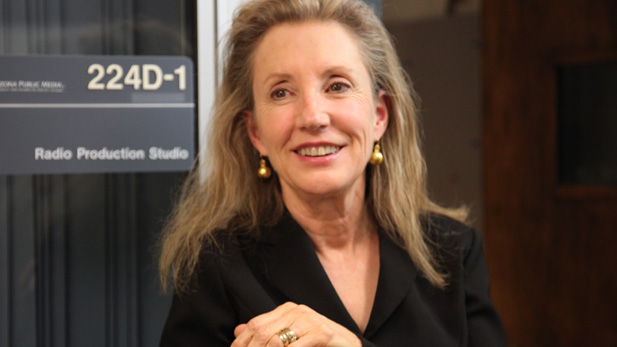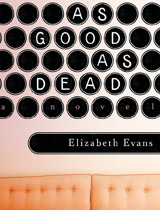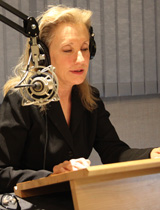 Elizabeth Evans in the Arizona Public Media Radio Studio.
Elizabeth Evans in the Arizona Public Media Radio Studio.
Elizabeth Evans will be appearing at the Tucson Festival of Books, March 14th, 2015 on the University of Arizona campus: It Was a Dark and Stormy Night – in Tucson! - Saturday at 2:30 PM, Student Union Kachina Hall (Elizabeth Evans, Aurelie Sheehan and other panelists will discuss why Tucson works as a setting for fiction.)
Evans will also be reading and signing copies of As Good as Dead on Thursday, March 26, 2015 at 7 PM at The University of Arizona Poetry Center, located at 1508 E. Helen Street in Tucson.
For good or ill, many of us have had the experience of reuniting with a friend or loved one after years of estrangement. That often difficult situation serves as the core for As Good As Dead, a new literary novel from Elizabeth Evans. Evans is a Professor Emeritus for the Program in Creative Writing at the University of Arizona, and this is her sixth book of fiction.
Listen:
Elizabeth Evans reads from her novel As Good As Dead. We join Charlotte, the narrator, in her home just moments before the arrival of a surprise visitor brings 20 years of regret and reflection to her doorstep...
Listen:
Sound Fiction audio design by Mitchell Riley.
"The spark really came from wanting to write about female friendship and intense female friendship and the idea of how it could go astray," Elizabeth Evans said about the origins of As Good As Dead.
"I did write a very long short story initially, I kept taking parts of it out and putting things back in and taking them out," Evans said. "I published it as a short story originally and my editor at Bloomsbury said "you know I think this is a novel," and I had to agree. I had to go back and start adding in the things I had taken out, and thinking a lot."

"I became very interested in the consequences of Charlotte's betraying Esmé when they were young and that meant looking at Charlotte's whole life and what had happened in those twenty years. Charlotte's kept some secrets and now she has to kind of think about those secrets and that became very interesting for me to think about how the secrets have distorted her life in certain ways.
"I was also interested in the way that she is not the same person that she was twenty years ago. She has learned some things, she's like a recovering alcoholic, and she's very frightened when Esmé turns up. But then she's able to get in touch with some resources that she has and some growth that she's had over the years. So all of that was very interesting to me."
"It became a much bigger story than the original story of the female friendship which without that friendship, there wouldn't have been a book. But it did become bigger. The difference between a short story and a novel is spending time with characters and getting to see the characters develop over time. It became a much bigger, richer project for me," Evans concludes.


By submitting your comments, you hereby give AZPM the right to post your comments and potentially use them in any other form of media operated by this institution.